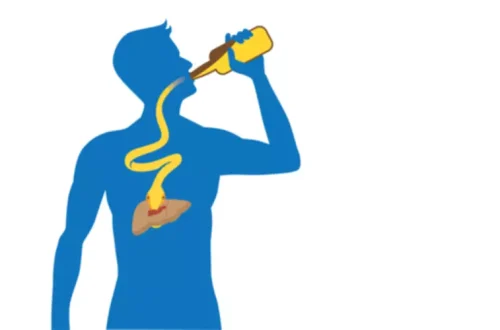
To learn more about how to get help for your loved one, contact us today to discuss our treatment programs. Alcohol use disorders are chronic conditions, but many people benefit from treatment and ongoing recovery efforts. Treatment options vary in intensity of services, length of treatment, and types of therapeutic interventions. Some of these treatment options may include inpatient treatment (such as residential rehabilitation), outpatient treatment, individual therapy, medications, and more. An alcohol use disorder (AUD) is a chronic medical condition characterized by an inability to stop or control drinking despite health, social, or professional consequences.
- “We’d talk to her, but things got to the point where it was decided an intervention would be necessary,” said Wilding.
- American Addiction Centers (AAC) is committed to delivering original, truthful, accurate, unbiased, and medically current information.
- Additionally, the intervention may set off other issues or complicate your relationship with them.
How does a typical intervention work?
Without going through addiction yourself, it’s incredibly difficult to understand the grip that substances can have on a person’s life. As a result, it will be harder to put yourself in their shoes, and you may find yourself wondering why they can’t just stop using alcohol. CRAFT can help family members support a loved one with a substance problem without relying on confrontation or shame. Instead, loved ones focus on rewarding positive behaviors to help guide behavior change with empathy and care. Let’s take a closer look at how the CRAFT approach works and how it can benefits families and individuals with substance use disorders. Zinnia Health is proud to offer leading innovations in drug addiction treatment, backed by a team of caring healthcare professionals.

How do you find a treatment program to offer at the intervention?
AAC accepts many private insurance policies, as well as some Medicaid policies. You can verify your loved one’s insurance for addiction treatment, which, depending on their provider and specific plan how to do an intervention for an alcoholic details, may be fully covered by insurance. When considering an intervention to help a loved one struggling with drug or alcohol addiction, there are some important steps that can guide the process. Treatment can be done via an outpatient or inpatient program and may be a combination of both.
What is the goal of an intervention?
People who struggle with addiction often won’t accept their situation and don’t want to seek treatment. They may not accept the negative effects their behavior has on themselves and others. An intervention can be a very dramatic, emotionally charged encounter. It has the potential to stir up a sense of betrayal or resentment on the part of the addict. Talk with a healthcare professional to learn how best to respond to these situations. Family members should also consider seeking help for themselves, regardless of whether the alcoholic agrees to get help.
- Goals might differ depending on the individual and the conversation.
- She rationalized that they were legitimate because they were prescribed by a doctor.
- In these instances, the steps in this section may still be useful.
- Often interventions occur without an intervention professional taking part.
- According to the outlet, Taylor is heard in a recording talking about the experience, noting that the intervention “stopped me so dead in my tracks.”
- This article will explore what an alcohol use disorder is, the side effects and symptoms of such a disorder, and advice on setting up an intervention for someone facing an alcohol use disorder.
Health Categories to Explore
Long-term recovery is challenging and your friend will need continued support. Be there to help them transition back into everyday life, and remind them that they’re not alone on this journey. This can be a tricky decision, depending on your relationship with your friend’s family. On one hand, having their loved ones express concern might be the wake-up call your friend needs. On the other hand, they may feel like you have betrayed them by going to their family first.

Reviews of AAC’s Alcohol Addiction Treatment Program
The participation of family members is particularly important for those recovering from alcohol use disorder in a residential treatment center. The more involved the family is, the easier it is for the person to successfully transition back to home life. For instance, a family member’s drug abuse, a traumatic event, or a dysfunctional household dynamic can all lead to alcohol addiction. This means that family can play just as significant a role in causing and worsening an addiction as they can while they offer support. Addressing your concerns for a family member, friend, or loved one often feels overwhelming and daunting.
- With prior notice, an alcoholic family member may simply refuse to show up.
- In the end, helping an addicted person can be a long and tricky process.
- It also may be right to ask your loved one to seek support from a group such as Alcoholics Anonymous.

So, take a step back and let them deal with the after-effects of their addictive behavior. If during the conversation, the person becomes violent or they make threats to harm themselves or others, the person with them is best calling 911. If the conversation becomes heated, it is best to end it and try again on another occasion. Although someone with AUD may show some of these behaviors, exhibiting them does not necessarily mean someone has AUD.

Stay positive

Codependency is a well-known disorder that can affect people living with someone who suffers from alcohol use disorder or another addiction. However, what’s important is that the individual has a strong support system around them during their rehabilitation. The involvement of the family is encouraged throughout recovery. The detox process is the first stage of treatment for any addiction. Detox is when the person officially stops consuming alcohol and allows all of the alcohol to leave their system entirely.
It’s OK to make choices that are good for your own physical and mental health. When someone with alcohol dependency promises they will never drink again but a short time later are back to drinking as much as always, it is easy to take the broken promises and lies personally. You may think, “If they really love me, they wouldn’t lie to me.” To avoid enabling an alcoholic spouse, you may have to leave the home you share, which can seem like too brash of a decision. However, it sometimes takes a harsh reality to make an alcoholic see a situation for what it is. If not done carefully, confrontation can end badly, especially if the person is a functioning alcoholic in denial or someone who has a history of verbal or physical abuse.
Signs of Alcohol Use Disorder
You do not have to put up with unacceptable behavior in your life. Substance use disorder is a primary, chronic, https://ecosoberhouse.com/ and progressive disease that sometimes can be fatal. No matter your background or expertise, your loved one will likely need outside help. You may still want to help your loved one when they are in the middle of a crisis. However, a crisis is usually the time when you should do nothing.
